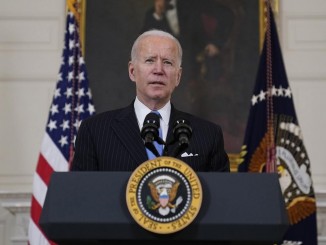
Two weeks ago Vermont’s Independent Senator Bernie Sanders officially introduced new legislation that would lower the mandatory workweek to only 32 hours, beyond which overtime pay would be required, and with no reduction in pay for workers already working full time. A similar idea was also proposed last year by United Auto Workers (UAW) President Shawn Fain before the auto strike began. Does this mean that the time is coming for this law and this change in our work lives? Well, yes and no, and not the way they propose.
First, workers work far too much, for far too little. Even as worker productivity has increased dramatically since the 1950s, workers have not been paid their “fair share” of that, nor has that increased productivity meant less work for us. It has only meant that the rich have gotten richer. That’s because as the capitalists have made our workdays more efficient with new technologies, new materials, new work formats and practices, they’ve pocketed more and more of the ever-increasing surplus that our labor produces. They give us a little, but not more than they have to – in other words, not more than they are forced to. So a reduction of the workweek with no pay cut is needed. But we should demand much, much more.
Since the late 1970s, worker productivity has grown about four times vs the amount workers are paid. But the vast majority of that surplus from our increased productivity has gone to our bosses. To make this right, working people nationwide should demand pay increases of 300 or 400 percent. Or, we could demand that we work only one-third or one-quarter of the hours we work today for the same pay. That would be a nationwide average work week of somewhere between 10 and 20 hours per week. That’s right, twenty or less. While these demands may seem outrageous, that’s because our bosses have been robbing us outrageously for decades!
We know that within our current capitalist economy, with a government that represents their interests, our bosses will never give us those types of raises. They profit from telling us how much to work, in what ways, and what we are to produce or provide. Those decisions that only they are allowed to make keep us in the dark about how much they profit off our work, or whose labor produces their wealth. If working people truly demanded our “fair share” of what we produce, it would destroy their profits and their wealth, their very reason for existing as capitalists.
Sanders and Fain persist in trying to reform an unreformable system and continue to try to convince workers that equality and fairness can be legislated by a government dominated by the capitalist ruling class. While there have been moments when the U.S. state passed legislation that benefitted workers, even those moments came only from struggle. Examples include the massive strikes of 1934 that forced President Roosevelt to support minimal workers’ rights and protections, or the Black Liberation Movement of the 1950s and 1960s that forced President Johnson to pass legislation outlawing the worst racist treatment and passing laws that provide basic democratic rights for Black people.
Bernie Sanders has done this for decades. He proposes seemingly radical ideas, then turns around and brings those workers right back into the fold of the Democratic Party, where those radical ideas are ignored. After harshly criticizing Hillary Clinton in 2016, he turned around and supported her. After criticizing Joe Biden in 2020, Sanders turned around and supported him. And he will do the same thing this year. And Fain, while mentioning the 32-hour work week proposal before the UAW auto strike began, never made it a bargaining point to be negotiated with the automakers. He wasn’t even willing to let the rank-and-file flex their muscles in the actual strike, never calling more than one-third of the UAW members to strike.
The only way that we, the working class, have ever gotten anything is through struggle against the people who exploit us. As long as those people exist, skimming profit off the top of our labor, then we will have to struggle against them to make our lives better.
We have the power to carry out the struggles that we need. We don’t need Sanders’s proposals to Congress, we don’t need Fain’s permission, and we sure can’t expect change from the rest of the political system.
We can only rely on ourselves. And when we do, and when we build our power, then so much more than a 32-hour workweek becomes a possibility.




